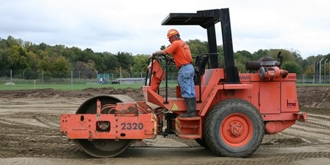Septic Ohio - Comprehensive Septic System Services in Ohio
Wiki Article
Comprehensive Excavation Techniques: Understanding the Principles for Success
In the world of building and construction and civil engineering, the significance of reliable excavation methods can not be overstated. The careful preparation, precise execution, and precise focus to information required in excavation jobs require a detailed method that incorporates numerous basic elements. From first dirt analysis to the execution of safety and security measures and normal development tracking, grasping these core aspects is necessary for achieving success in any excavation undertaking. Nevertheless, real mastery lies not just in understanding these basics however in flawlessly incorporating them to browse the complexities of excavation tasks with skill.Comprehending Excavation Project Planning

Successful excavation tasks are developed on the foundation of precise and extensive planning. The first phase of any kind of excavation project is the planning stage, where vital choices are made that can considerably affect the end result of the job. During this phase, it is necessary to collect all pertinent information regarding the site, consisting of topographical studies, soil make-up, and any prospective dangers that might exist. Comprehending the project budget plan, extent, and timeline restraints is important for creating a thorough excavation strategy that ensures the task's success.
One secret facet of excavation task planning is the development of a detailed timeline that details the sequence of milestones, due dates, and activities. By carefully considering all these factors throughout the preparation phase, excavation tasks can be executed effectively and efficiently, leading to effective outcomes - septic ohio.
Soil Evaluation and Site Evaluation
Conducting comprehensive dirt analysis and website analysis is a critical action in the preparation stage of any excavation project. Soil evaluation includes establishing the structure, structure, and properties of the soil at the excavation site. This information is crucial for recognizing the dirt's bearing ability, dampness web content, and potential for disintegration, which are essential elements in determining the excavation methods and devices needed for the project.Site assessment goes past soil analysis and encompasses a broader analysis of the total site conditions. This analysis consists of identifying any type of prospective risks, such as underground energies, environmental problems, or unstable terrain, that might affect the excavation procedure. By thoroughly assessing the website, project managers can create efficient excavation approaches that focus on safety and security, effectiveness, and ecological protection.
Making use of sophisticated technologies like ground-penetrating radar, soil sampling, and drone surveys can enhance the accuracy and performance of soil evaluation and website evaluation. Investing time and resources in these preliminary actions can ultimately save time and protect against costly delays or difficulties throughout the excavation procedure.
Tools Selection and Usage
Effective excavation tasks rely greatly on critical tools choice and usage to guarantee ideal performance and productivity. Selecting the appropriate devices for the job is important in making the most of effectiveness and lessening downtime. Factors such as the sort of soil, deepness of excavation, and project extent play a significant role in establishing one of the most ideal equipment for the task handy.
In addition to choosing the ideal tools, proper usage is key to job success. Operators should be trained to deal with the equipment safely and successfully - septic ohio. Regular upkeep checks and timely repair services aid stop failures and make sure constant performance throughout the project
Security Actions and Regulations Compliance
In the world of excavation jobs, focusing on precaution and compliance with laws is extremely important to ensuring a safe and secure and lawfully audio operational atmosphere. Security measures encompass a series of practices, consisting of carrying out thorough site assessments, executing appropriate signage and barriers, and providing sufficient safety training for all workers included in the excavation process. Adherence to guidelines, such as OSHA demands in the USA, makes certain that the excavation job fulfills the required standards to secure workers, spectators, and the surrounding setting.
Monitoring Progression and Adjusting Strategies
Exactly how can forecast managers effectively track the innovation of excavation jobs and adapt their strategies as necessary to maximize outcomes? Tracking development is essential for guaranteeing that excavation tasks remain on track and meet deadlines.
Verdict
Finally, grasping her explanation the basics of extensive excavation strategies is vital for the success of any task. By recognizing job preparation, assessing dirt and website problems, selecting appropriate tools, conforming with safety laws, and monitoring progression, task managers can ensure a reliable and smooth excavation process. Executing these techniques will cause effective results and lessen possible dangers or problems throughout the excavation task.
The initial phase of any kind of excavation job is the preparation phase, where important choices are made that can dramatically impact the result of the project. Recognizing the job range, spending plan, and timeline restraints Learn More Here is vital for creating a thorough excavation plan that makes certain the job's success.
How can project supervisors successfully track the development of excavation jobs and adjust their methods accordingly to optimize results? By closely monitoring progression and being prepared to adapt methods, task managers can boost the overall success of excavation projects.
By understanding project preparation, assessing dirt and site conditions, selecting appropriate equipment, conforming with security policies, and checking development, task supervisors can ensure a efficient and smooth excavation process.
Report this wiki page